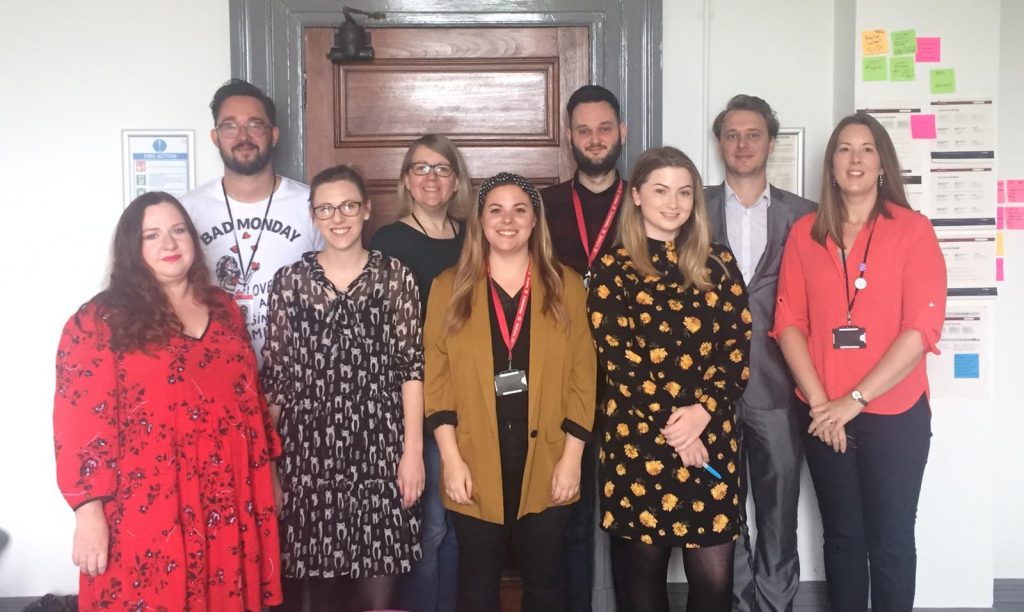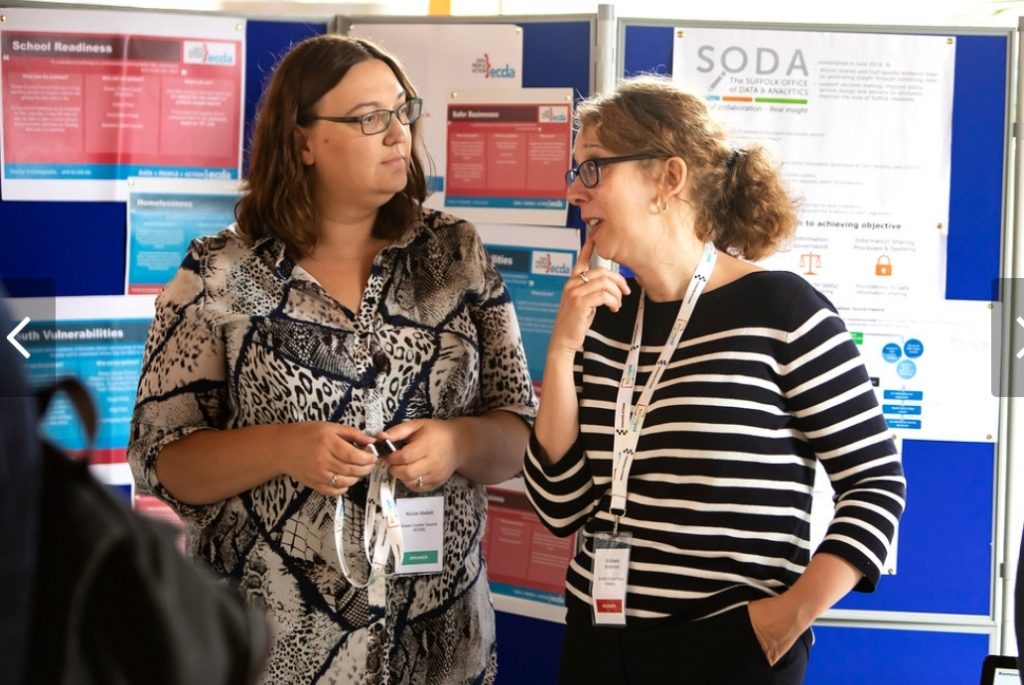
On 26th June colleagues from Essex County Council, Essex Police, and University of Essex took ecda to the Catalyst Conference. This event reflected on the work of the Catalyst Project, showcasing the progress of the collaborative initiatives and highlighting the future potential for analytics in local government.
ecda partners came together to facilitate a series of discussions formed around the 3 key components of ecda;
Data + People + Action = Essex Centre for Data Analytics
This is the second instalment of the trilogy………….. ‘PEOPLE’
PEOPLE: By Tom ‘People’ Aldworth
Yes, it is true that a good trilogy only exists if the first part is a success. If nobody had watched Buzz Lightyear falling with style, it’s unlikely Disney Pixar would have stumped up the cash to introduce to Jessie, Bullseye and Stinky Pete.
But it is equally true that a bad sequel would leave you with just that: a good movie ruined by a low quality imitation (I’m looking at you, Monster’s University). Without that middle instalment there would be no trilogy.
Two slices of bread doesn’t make a sandwich, which is why people are probably the most important consideration of ecda. Without people, we can’t identify the right problems to tackle, we can’t identify the right data to use, and we can’t generate the impact that we crave.
At the Catalyst Conference on 26th June, one breakout session focused on people. As a group, we quickly realised that there are several things we need to consider when we say people. (1) Intelligent stakeholders and customers, (2) front line staff who can carry out the action to turn insight into action, and (3) talented analysts and data scientists.

Problems, not questions
Something that came through in our conversations about stakeholders and customers was the need to generate problems, not questions. Questions often lead us down a certain track without considering whether we should have taken a left at the last cross roads. Understanding the problem gives us the opportunity to plan our route without taking the first turn we see.
It’s not uncommon for people to want to know more about a subject. Information is power, and getting hold of as much information about a subject as possible can only be a good thing, right? WRONG. Sometimes having too much information can shackle you and distract you from the important issues at hand.
So, in order to cut through the noise, we spoke about the need to start with the end in mind. By knowing what we hope to achieve by tackling a problem, we can work with our stakeholders and customers to determine what the key questions are to help them reach those ends.
Talking about this led us on to a conversation about working with the right people and making sure the right voices are around the table in those early conversations. Yes, your exec director will have a good understanding of a problem in their service area, but the police constable / social worker / paramedic / school teacher / hip hop dance instructor in the area will need to take out the activity to create the action, and they will know what is and isn’t achievable in their day to day world.
Stephen spoke in the first instalment of this series about a general mistrust and fear of data sharing that can exist. It’s unrealistic for people in data and analytics roles to think that sending out some insights to someone who hasn’t been engaged with throughout the process will ever lead to anything other than suspicion. It’s key that we work early with those people that will be carrying out the work, so that we can better support them with the right sorts of insight.
And of course, this wouldn’t have been a public sector conversation without people talking about resourcing, capacity, recruitment and capability. Someone wise (probably) once said that “analyst is the most abused job title in the public sector”, and that was a common theme throughout our conversation. If you asked a hundred people for their definition of what an analyst is, you would probably get a hundred different answers. In fact, if you asked a hundred analysts you’d still probably get a hundred different answers.
How do we learn from one another?
Because of this, we spoke about the importance of closing the gap around our analytical network and across the partnership. How do we learn from one another? How do we share insights? How do we stop duplication of work? How do we share our skills?
These are all questions that can’t realistically be answered in a 25 minute breakout session, but we gave it a good go. There is a real appetite to create a proper analytical network, to sit with and learn from people across organisations. And there is a real feeling that ecda can facilitate this culture of learning and sharing.
It’s exciting and welcoming to see first hand that people are the lynchpin of ecda, and without them we will never become what we aspire to be.
However, as with all trilogies, the quality is judged by the final instalment. Everyone knows Godfather’s 1 & 2 were exceptionally good, but most can agree that the trilogy is weak because part 3 wasn’t up to scratch. And if cinema history has taught us anything, it’s that the third instalment is the most challenging to get right. For every Kung Fu Panda 3 there are at least a dozen Marty McFly’s in a cowboy hat.
So, whilst Stephen ‘Data’ Simpkin wouldn’t say that ‘data is the most important part of said trilogy’, I will be bold enough to argue that action is. Without Return of the King, Frodo would have been forever wandering around the woods with a piece of haunted jewellery, and without action, ecda will be a pointless venture.